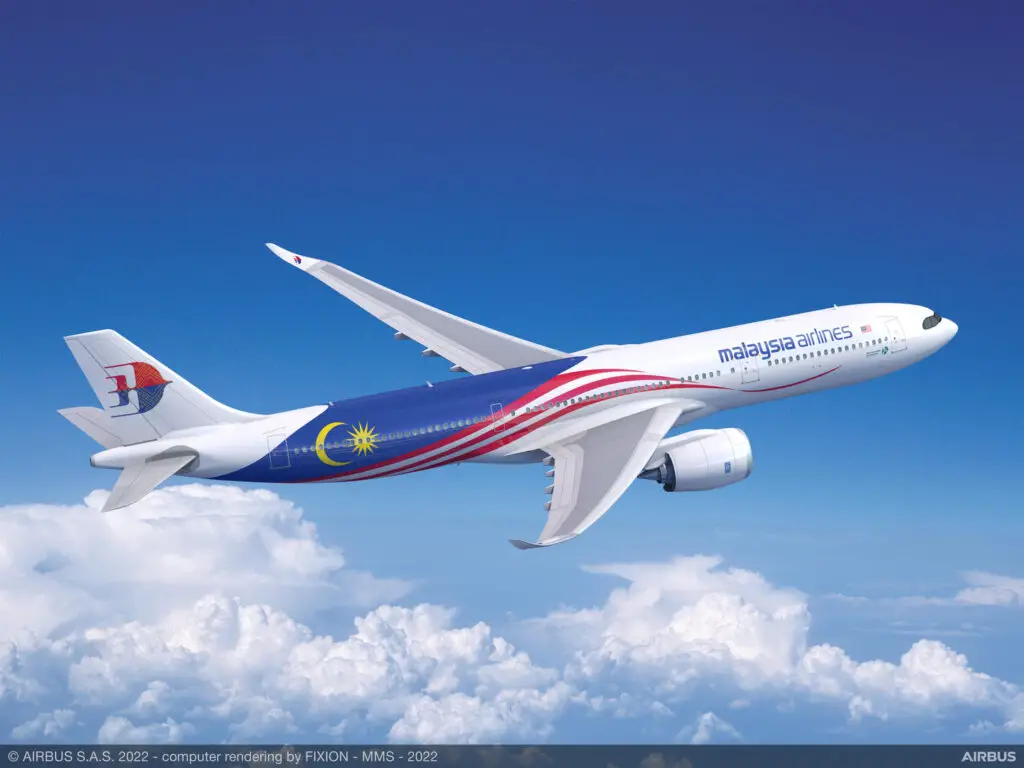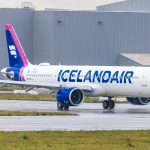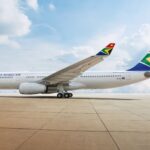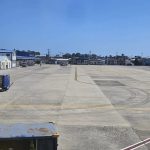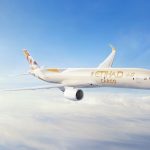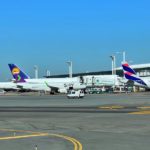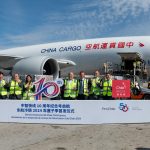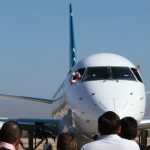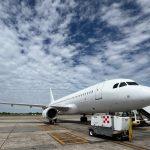Malaysia Aviation Group (MAG), parent company of Malaysia Airlines, has selected the A330neo for the airline’s widebody fleet renewal program. The purchase covers the acquisition of 20 A330-900 aircraft: 10 will be purchased directly from Airbus and 10 are set to arrive via a leasing arrangement with Ireland-based lessor Avolon.
The announcement was made at an event in Kuala Lumpur, attended by MAG CEO Izham Ismail and Airbus Chief Commercial Officer and Chief International Officer Christian Scherer, who signed a Memorandum of Understanding (MoU) for the aircraft order from Airbus. Agreements with engine manufacturer Rolls-Royce and Avolon were also signed at the ceremony.
Powered by the latest Rolls-Royce: Trent 7000 engines, the A330neo will join the fleet from 2024 alongside the airline’s existing six A350-900 and will gradually replace its 21 A330ceo aircraft, which includes 15 Airbus A330-300 and six Airbus A330-200.

The airline will operate the A330neo on its network covering Asia, the Pacific and the Middle East. Malaysia Airlines will configure it with a premium design seating 300 passengers in two classes.
«The acquisition of the A330neo is a natural transition from our existing A330ceo fleet. The A330neo will not only provide fleet modernization and greater operational efficiency, but will also meet environmental targets by reducing fuel burn per seat, while keeping passenger safety and comfort at its core,» said Izham Ismail, CEO of Malaysia Airlines.
Malaysia Airlines has been rebuilding its image following the disappearance of MH 370 and the downing of MH 17, which led to historic losses for the company as bookings fell in 2014. The rise of low-cost carriers in Malaysia, the costly use of the Airbus A380 and delayed deliveries of the Boeing 737 MAX have contributed to the company’s falling profits.
The following years saw a steady turnover of senior executives at the airline, leading to the appointment of Captain Izham Ismail, who served as the airline’s chief operating officer prior to the appointment, in 2017. The new CEO is leading a rebranding and fleet renewal program in conjunction with the Malaysian government.
«This is a significant milestone as MAG moves towards the successful execution of our Long Term Business Plan 2.0 to position itself as a leading aviation services group within the region.» Izham Ismail concluded.
In addition to the widebody fleet renewal, Airbus and MAG also signed a Letter of Intent (LoI) to explore a broader collaboration in the areas of sustainability, training, maintenance and airspace management.
«Malaysia Airlines is one of Asia’s great airlines and we are proud and honored to be their preferred supplier of widebody aircraft. The decision is a clear endorsement of the A330neo as the most efficient option in this size category for premium operations.» exclaimed Christian Scherer, Airbus CCO.
MAG’s current fleet consists of:
- Six Airbus A350-900, which are on average four years old, covering its flights to London, Auckland and Tokyo.
- 21 Airbus A330-200/-300, which have an average age of 11 years, serve destinations in Australia, Bangladesh, China, Hong Kong, India, Indonesia, Japan, Myanmar, Nepal, New Zealand, Philippines, Qatar, Saudi Arabia, Singapore, South Korea, Sri Lanka, Thailand, Taiwan and Vietnam.
- 43 Boeing 737-800, which have an average age of 10 years, covering its domestic routes and 23 international destinations.
In addition to the A330neo, it has an order for 50 Boeing 737 MAX 8s and MAX 10s to be delivered between 2024 and 2026 to replace its Boeing 737 NGs.

As of the end of July 2022, the A330neo has received more than 280 firm orders from more than 20 customers worldwide and 77 aircraft have been delivered. They are currently operated by the following airlines:
- TAP Air Portugal: 19 A330-900 out of an order for 21 aircraft.
- Delta Air Lines: 15 A330-900 out of an order for 38.
- Lion Air: 7 A330-900.
- Azul Brazilian Airlines: 5 A330-900.
- Corsair: 5 A330-900.
- Garuda Indonesia: 5 A330-900 from an order of 14 A330-900 and four A330-800.
- Cebu Pacific Air: 3 A330-900 from an order of 16, with a single-class capacity of 459 passengers, the highest seat density of the model.
- Air Belgium: 2 A330-900.
- Air Mauritius: 2 A330-900.
- Air Calin: 2 A330-900.
- Starlux: 2 A330-900 out of an order of 7.
- Thai AirAsiaX: 2 A330-900.
- Uganda Airlines: 2 A330-800.
- Kuwait Airways: 2 A330-800. from an order of four A330-800. and seven A330-900.
- Airhub Airlines: 1 A330-900.
- Air Senegal International: 1 A330-900.
- Hi Fly: 1 A330-900.
- Iberojet: 1 A330-900.
- Sunclass Airlines: 1 A330-900.
- Thai Lion Air: 1 A330-900.
In addition, the remaining orders are from:
- ITA Airways: 17 A330-900.
- Condor: 16 A330-900.
- Virgin Atlantic: 16 A330-900.
- AirAsia X: 15 A330-900.
- Middle East Airlines-MEA: 4 A330-900.
- Air Greenland: 1 A330-800.
- IranAir: 28 A330neo, due to sanctions, the carrier is unable to receive the model, although it remains on the Airbus order list.
- Undisclosed customers: 33 A330neo.

